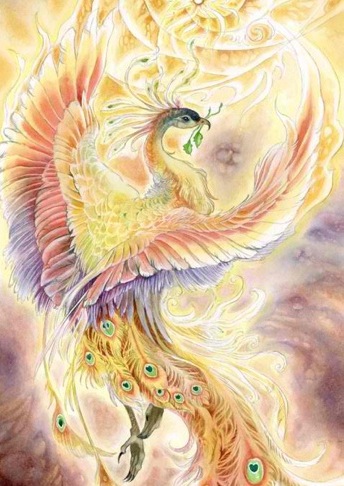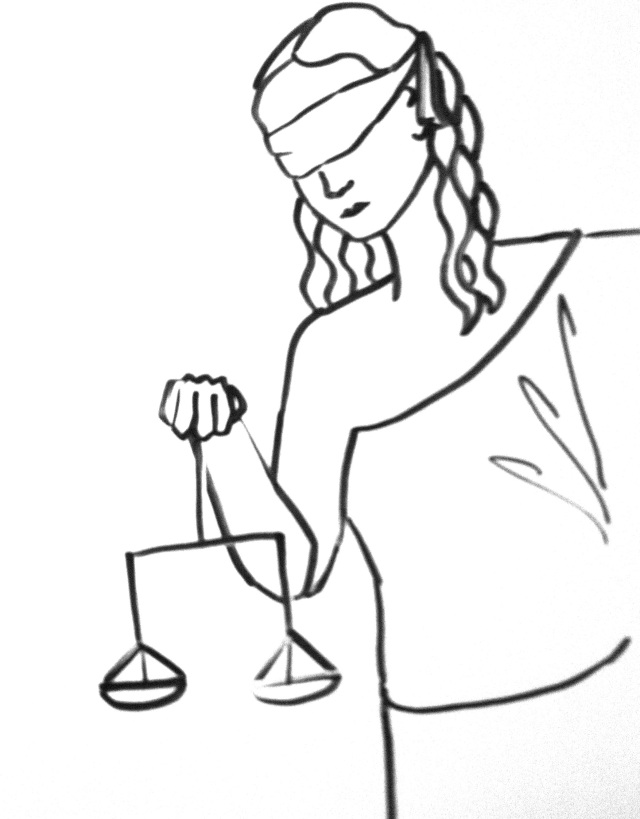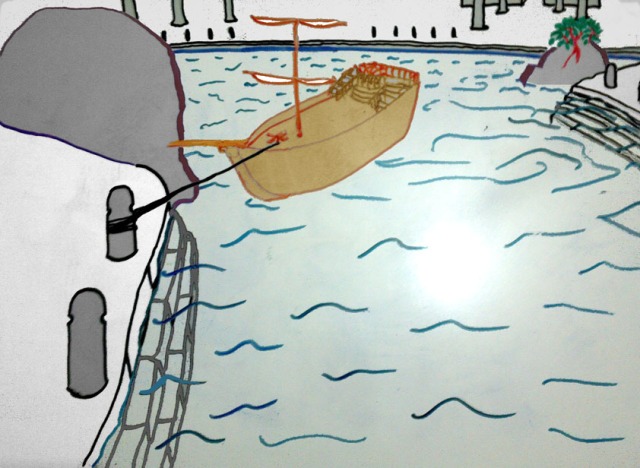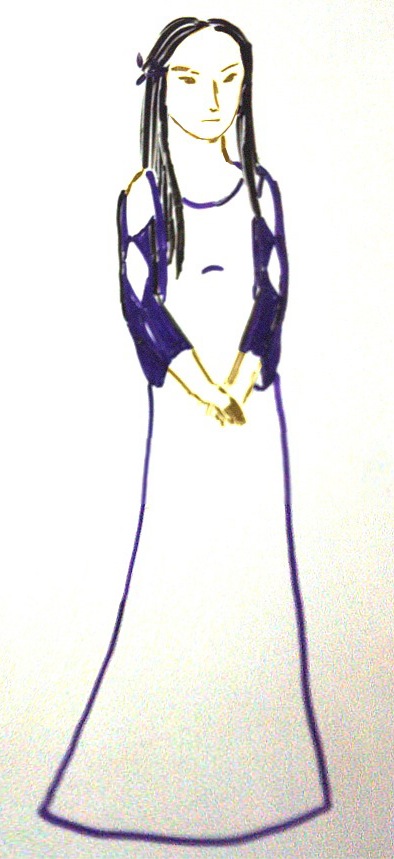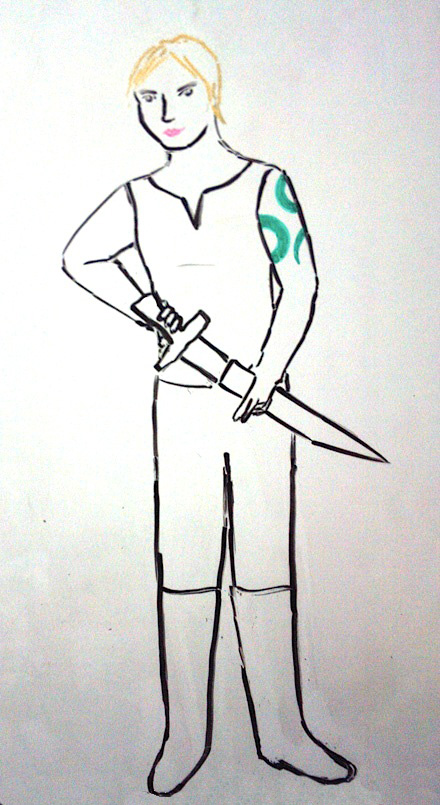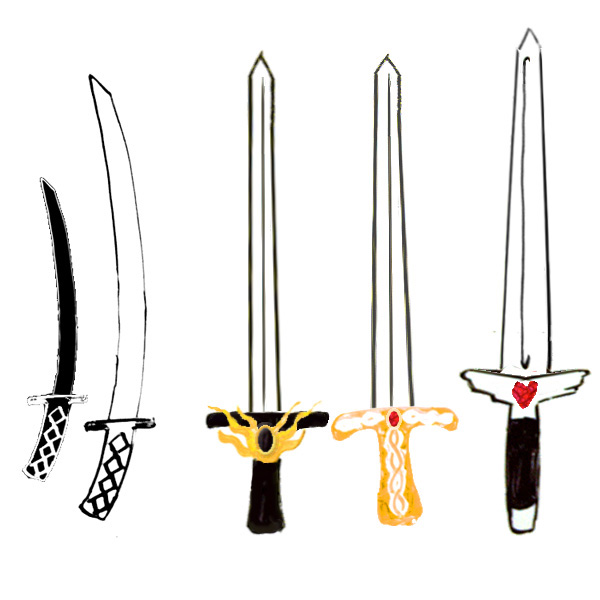The following entry may contain triggering material, descriptions of emotional and sexual abuse.
When I was a child, the whole world was…I’d now just call it information. I make some distinction between this sort of Default World and the Other World(s) now and what would be found in it; I didn’t used to, because I was still learning how the world worked, that is, worldsss workeds as it turned out at the time of this writing. As a child, I’d pick up on a superstition here, a prayer there, a word for something and glean the meaning from the attitude of the speaker during the saying of the thing: “ghost” “angel” “demon” “duende” “engkanto” “third eye”.
For lack of structure and vocabulary of an established spiritual tradition, I make up my own terms for some things that are based on or combine with this, that, or the other thing I’ve read about (fairy lore! pop alchemy! dreamtime! neo-shamanism! psionics! jungian psychology!) because the phenomena described in any of those traditions at a given time is part of my life. I still find myself in situations of unutterable can’t even, but not as often or overwhelmingly…as when I was five and six and seven, suffering from bad vibes that I didn’t have a word for let alone ways to keep off (because “subtle energy” and “shielding” weren’t a thing in my mind yet), and everyone’s patience had failed when it came to my resulting tantrums and oversensitivity; or fourteen or fifteen or sixteen and still bed-wettingly terrified of the dark (because…that’s for another entry, but it was mostly something otherworldly. Partly. Maybe a little.)
I mean, the damage of that neglect or dearth-of-knowledge in that area of my life is done, I mean done as in no more of that in the foreseeable future, I am better equipped now to face the world or worlds. And housebroken. That is a good, let’s all throw confetti!
Aaand recognize that all the aforementioned traditions have some integral internal consistency, and application that simply (or complicatedly, through any number of technicalities) excludes me, how I think and live, and especially what I try to make the do thing. (I wasn’t stealing Dreamtime! I was just believing out loud that it’s real outside of Australia. But yes also colonialism decimated the very thing it named, so maybe that sort of thing I do doesn’t help a Lost Generation to recover.)
That wobbly balance is where I come from, as this entry heads West.
*
I haven’t gone on a quest in a long while. If I try to go quest, the quest doesn’t follow me, so it doesn’t happen. So, I take that to mean that I’m either not up for it right now, or that the otherworlds aren’t inclined to let me in to do stuff. I say that as though an otherworld can decide that, but I don’t know, sometimes it happens when I’m not trying, so it’s more like the weather.
Before this most recent one I’m about to write about, I’d been refreshing what I’d read of Otherfaith canon, and what caught my attention was the Dierne’s ability to smell something foul on those who had violated consent. the Laetha Ava had a similar ability, and I speculated on whether the spirit Dahlia had the same.
How would that work? What sort of energetic dynamic comes off as a stench? Whether it’s the sort of energetic signature of a perpetrator’s feeling of guilt, or the peculiar quality of a victim’s attention to their perpetrator then ‘marking’ that perpetrator for these gods and spirit…I’d love to believe in beings who just know and wreak justice on violators, especially when it’s that clear who did something so wrong, but I’d appreciate a reliable way to know what they’d know even more.
Because it happened to me, or I feel like it did, but everyone I trusted enough to tell said that it didn’t count because these so-called perpetrators were female and it was physically impossible and politically incorrect, or it wasn’t as bad as a real rape, or that nobody cares what I have to say about it. It wasn’t something I should have developed suicidal depression and dropped out of school to live as a recluse for, unless I’d consciously sacrifice seven or eight years of my life for whatever ‘rewards’ I can reap from emotional blackmail. So they said, my corporeal friends and family.
Dahlia would kill over a sexist heckler, but how would she know? Is the heckler’s fatal misstep being caught in the act because Dahlia is occasionally watching? Or does the act of street harassment change someone’s spiritual or psychic composition?
(And is it in me after all to abuse in the guise of a victim? Dahlia shows probably the lowest tolerance for that sort of thing. She’d know.)
*
The quest began in what I recognized as the anteroom of the apartment that Miasma and I had moved into together after our mother died. We didn’t have a father. Oh, I mean, biologically, it’s a high statistic possibility that we had a father, but I couldn’t say in good conscience that we had a Dad.
The apartment was furnished the way it had been after I had started my first job, and made a friend there, and brought up the possibility to Miasma that this friend could become our roommate. (“Is she going to sleep in your bed?” Miasma asked, her face twisted with apprehension and disgust. I thought Miasma would be worried about sharing her queen-sized mattress with a stranger, so I said sure Cara would be roommates in my room, and when Miasma’s expression didn’t change I asked what was wrong with that. “Association?” Miasma answered, even though the tone of her voice made it sound like a question, and the words were something other than Absolutely Not, that’s what it truly meant. I believe this wasn’t even Miasma’s opposition to my deviant sexual orientation—great to out me to people I don’t know so that Miasma herself gets a reputation for having an interesting alternative accessory of a person in her life, not so great to actually live with a gay person who does gay things. It wasn’t even like that with Cara and me: we were just friends. Rather, I believe this was more like Miasma’s revulsion of the Plebian cooties that I would catch from Cara, because I’d taken a job below the class that Miasma and I had grown up in, and Miasma had been stressed enough that we’d moved to a one-bedroom apartment with a narrow kitchenette counter against the wall instead of a kitchen as a separate room. And Miasma worked at a magazine, instead of a theater like she’d wanted.
When a professional diplomat friend of Miasma’s referred a destitute rebellious daughter of a political dynasty to us, that’s when it had become obvious that the room was never mine. Miasma put a pillow on the narrow slot of uncluttered tile floor in front of the bookshelf, for me to sleep on. That wasn’t a question. When I look back on this, I believe Miasma didn’t foresee a use for Cara. Miasma could, however, one day call in a grand favor from a not-so-destitute rebellious daughter of a political dynasty. Let’s say our new roommate’s name was Prudence.)
And Dahlia sat on the tiles by my pillow, with a feline insouciance.
I said, “You’re looking well—” meaning, Dahlia’s appearance was more like my headcanon of her had been, like a less hawkish Angélica Celaya. Not like the time that one of Captain Foxglove’s crew started insisting that he was Dahlia. Why would he do that. Why would she do that. Did she? I forgot to ask. “But,” I added, “This isn’t the time or the place where it happened, what I wanted your opinion about.” (Coercion is a matter of opinion, right? I only had the opinion I did because I was there and it happened to me, but too many people have said I’m wrong for me to expressly or even consciously sustain that opinion.)
With Socratic irony, although I guess now that ought to be Dahliac irony, she wondered, “Why is this where we are, then? This is made of your memory.”
I took a moment to intuit. It’s like sifting through the connotations of silence. Some silences are empty, some are very full; some are complicit, yes, but some silences are the opposite, powerfully contemptuous. “I left something important behind, here. There.” In the pillow beside Dahlia. The space around that area rippled with something like magnetic heat—is what I would write, to make it more visual. Really, it was more like the place at which Dahlia sat began to feel Important now that we’d deigned to notice it, which is less interesting to describe.
(Both Cara and Prudence were single mothers. I knew how difficult that would be, I would have gladly slept on the floor. So, I did. Gladly. It was almost like a choice. Miasma had expected Prudence’s connections to rally at a snap of Prudence’s fingers: Miasma had told me that sleeping on the floor would only be for a few days, weeks at most. Four months later, Miasma took me into Prudence’s room for a private talk. Prudence and her son had gone out to see their friends, or something. I hadn’t been complaining about Prudence, but Miasma wanted me to. From what I remember of the conversation, Miasma had really wanted me to say that I was resentful and frustrated at being forced to sleep on the floor for so long. I wasn’t.
I was resentful that Miasma didn’t give me a choice as to who I would do that for or when, and that was what I said instead. Prudence was fine! Prudence was awesome, especially for figuring out within five minutes of meeting me that I loved to have a job, unlike my own sister who insisted that the industry sapped my soul the same with it did all artistic talents who had to sell out and get such Real Jobs for the money. Prudence and her child could stay with us for as long as they needed to! We totally jived, Prudence and I! Besides, Miasma knew that it took far more than four months for some people to get back on her feet financially. Our own mother had been like that after she lost her job. How dare Miasma ask me now when Cara—
Miasma’s face twisted into a condescending flinch, and she told me, “It’s not about you.” Why ask me, then? The day after, Prudence stopped me on the way out of the bathroom—with a word. She lay in her bed, weighed with early-morning sleepiness or what I feared was the same abject misery my own mother took on four months after losing her job. Pru told me that Miasma had spoken with her—she and her son would be out of our apartment by next week. And that she, Prudence, owed me an apology for taking my bed. She hadn’t known I’d be so resentful.
In this manner, I learned that Miasma had recited the script with which Miasma would confront Prudence, a script that Miasma mentally composed before Miasma checked in with me: a script that spoke for me, but full of words I had never said.)
Miasma had wanted me to fight…eventually. Why hadn’t I, from the start? She was going to tell Prudence and everyone that I was selfish about having my own room, anyway, when Miasma had taken to sharing the queen mattress on the floor with a third roommate of Miasma’s own choosing. They’d met at work. I didn’t know Danica very well before then. Danica would know I wasn’t some brat who banished herself and a long-suffering Miasma to a mattress on the floor of the anteroom, but the knowledge between us was enough for her; Miasma would ensure that everyone else heard the lie that I had my own room. She was very personable. Everyone else believed her, and, apart from work, I didn’t have any friends who weren’t Miasma’s friends first. I’d dropped out of school, and never had friends there.
Why hadn’t I fought? Didn’t I know something wasn’t right?
Sleeping here was almost like a choice, but not one I made. This was a past life I’d forgotten. It’s enough of a mystery that the person I am now has a difficult time controlling my sneer when I hear that somebody’s been hurt emotionally, and at the tip of my tongue: “Why didn’t you speak up, say no and mean it? Why didn’t you fight? Why don’t you just leave that abusive situation already?” Why don’t we get over these things. Already.
I reached out, fingertips of my non-dominant hand questing for what felt like some sort of siphon, some sort of magnetism, in the field of Importance that weighed or scented the memory. Dahlia folded her legs up to her chest so that I’d pass her by instead of step over her, and that was a strange thing to do because my hand went into the pillow. My palm grasped something flat that stung, like a jolt, not bad enough for me to let go or jerk back.
But I knew what this was, even though I’d never encountered it before in a quest. It was a part of myself that I’d cut off, and it radiated: “You don’t deserve more than this. You’re indebted to the world for all the space you take up, for every breath of precious oxygen you take that’s wasted on you. You’re twenty-three with a tenth grade education. You lay down in a soft bed under a roof while your mother was alive, doing fucking nothing. Getting to sleep on a pillow on the floor is a fucking favor the whole world is doing. You’re not allowed to complain. You’re not owed anything in life but death. What titles do you think you were born into, that you can expect dignity? What titles do you think you’ve earned? The answer is none because you’re a waste of everything and anything. You’re broken and should be tossed away.”
“Eww,” I whinged, as I released the shard and backed away. “I don’t want that part of me back. Can we move on over to the memory of when my mom and Auntie Vicky violated my sexual boundaries together? Please? Everybody I complained about it to was right, it wasn’t this bad. It was only moderately worse than street harassment, which actually isn’t bad, I mean it is bad but not vigilante-death-penalty-execution bad.” Auntie Vicky had already apologized, several years after the hotel room incident, and in the most point-missing way possible: she and my mother had prayed away the gay. I wanted to wave my hand up and down in front of her face. There was no way Auntie Vicky could have missed Miasma’s boasts about what a gay sister she had in the family. That wasn’t what I of all people sought restitution for.
“Take it,” Dahlia urged, referring to the shard, “or someone else will and they’ll use it against you.”
(Aunt Vicky and my mother thought I’d be too deeply asleep to notice they were having sex in the same bed that I was trying to sleep in. This not two minutes after I put The Two Towers on the nightstand and put out the light. They should have woken me up, suggested I finish The Two Towers book by the hotel pool or go to a dance club or something. Or gotten themselves another hotel room. I’d finally been enrolled in a school that reinforced anti-bullying policies, regained some motivation and ambition in this academic career path, only for my mother to pull me out again because she’d lost her job. My mother and I both mourned the future we’d never had. We both needed comforting. Sex with Auntie Vicky only worked to that end for one of us.
And while it was happening, because I knew my mother needed it even though I hated it, I hated what this meant about what they thought about me, as possessed of no more consequential perception than a pillowcase or a doll on a shelf, I just quietly edged off the mattress of the hotel bed and slept on the floor—huh. How about that, a parallel. Hrmm.
Anyway, the next morning, my mother pretended that nothing happened, although Auntie Vicky awkwardly brought up some yoga trivia she thought I would be very interested in: the kundalini serpent re-explained as a metaphor for how the sex drive is too strong for anyone to really control themselves. No, I don’t believe Auntie Vicky said this to me that morning as a sexual predator necessarily, just as an embarrassed and repressed grown-ass woman who was cheating on her husband with my mother and trying to explain herself without admitting to anything. But the irresponsibility of fully-grown adults with unhealthy boundaries just got worse from then on. And if they didn’t grow up, neither have I.)
I reached back in and pulled the thing out of the pillow. I’d expected it to be like a tarry shred of fabric gone stiff, the same color as the terror I felt as a young teen after lights out, or maybe like the ink sac that Foxglove cut out of my body on the first quest I found him.
Instead, the shard glinted like early afternoon sun and was the same shape and texture as a flint arrowhead. Unlike corporeal gold, it weighed next to nothing and almost floated out of my hand. “That can’t be right,” I said, “What this thing broadcast when I held it, what it means by existing in this quest, is more like the repressed vices, the shadows…the prima materia or imperfect metals of psychological alchemy. It’s not a golden idea already. It can’t be.” I wasn’t exercising my intuition, though, I was just spitballing dismayed and confused guesses.
Dahlia hummed doubtfully and stifled a yawn, but didn’t stifle it enough that I didn’t catch her at it, and I wasn’t even trying to catch her at anything. “Maybe it’s done the best it could since you left it all alone. Like I would know. Yeah, I might be a seafaring adventurer, but I don’t chase after shinies.”
I liked Dahlia already. The first time I started to ramble at Foxglove about how the emotional logic of repeating a trauma (maybe you’ll win and get it right this time, but we’ve got to repeat the same harmful pattern to be sure that win and right is what happens) conflicts with the logical logic (just get away) he jumped overboard. Maybe he was trying to be funny, but it was his ship so that wasn’t clever. Foxglove ripped an ink sac out of me, but instead of laying it on a platter or an ink well, he let it pool in caskets and chests. This was before I read any books on alchemy, so it’s tempting to foreshadow that Foxglove knew that my emotional darkness that had kept me so intensely miserable could be removed, stored and turned into some sort of emotional gold. That would be his, and I wouldn’t object. “Captain Foxglove might like to take a look at this, he’s my, um—”
“Don’t mind if I do!” A familiar silver hook at the end of a cerulean blue sleeve shot into my vision and made away with the shard. I turned my head to follow, only to find empty space.
After a roll of my eyes, I turned to where Dahlia had been. “Didn’t even stay to make your acquaintance properly. Can you believe the ner—”
Dahlia had vanished, too.
*
So ends this telling of the quest, but even as I wake and type in the corporeal world, I think I ought to mention that my surreal fetch is still in that room. There, I’m rattling at locked doorknobs, walking into a force field where the anteroom opens up to the kitchenette, clawing at locked windows and climbing up the bookcase. It’s only been a few days of that in corporeal time, and my experience only dips into that sometimes. Maybe there’s something else in that room I need to find. Maybe the memory itself decays on its own, like eggshell. It is a five or six year old memory. I’d venture to guess that this sort of quest cul-de-sac happens as often as a recurring dream. Quests and fetches are what I call otherworldly journeys and spirit bodies respectively, although I find potential confusion on the point that Foxglove isn’t explicitly a Western fae and Dahlia isn’t a guiser or familiar. In any case, these denizens of the high seas hadn’t taken my fetch with them for a good reason, I’m sure. Myfetch and I’ll find our way out, and maybe find out.



